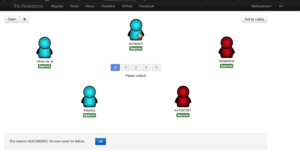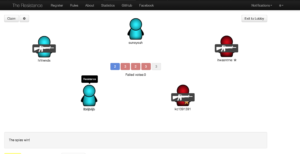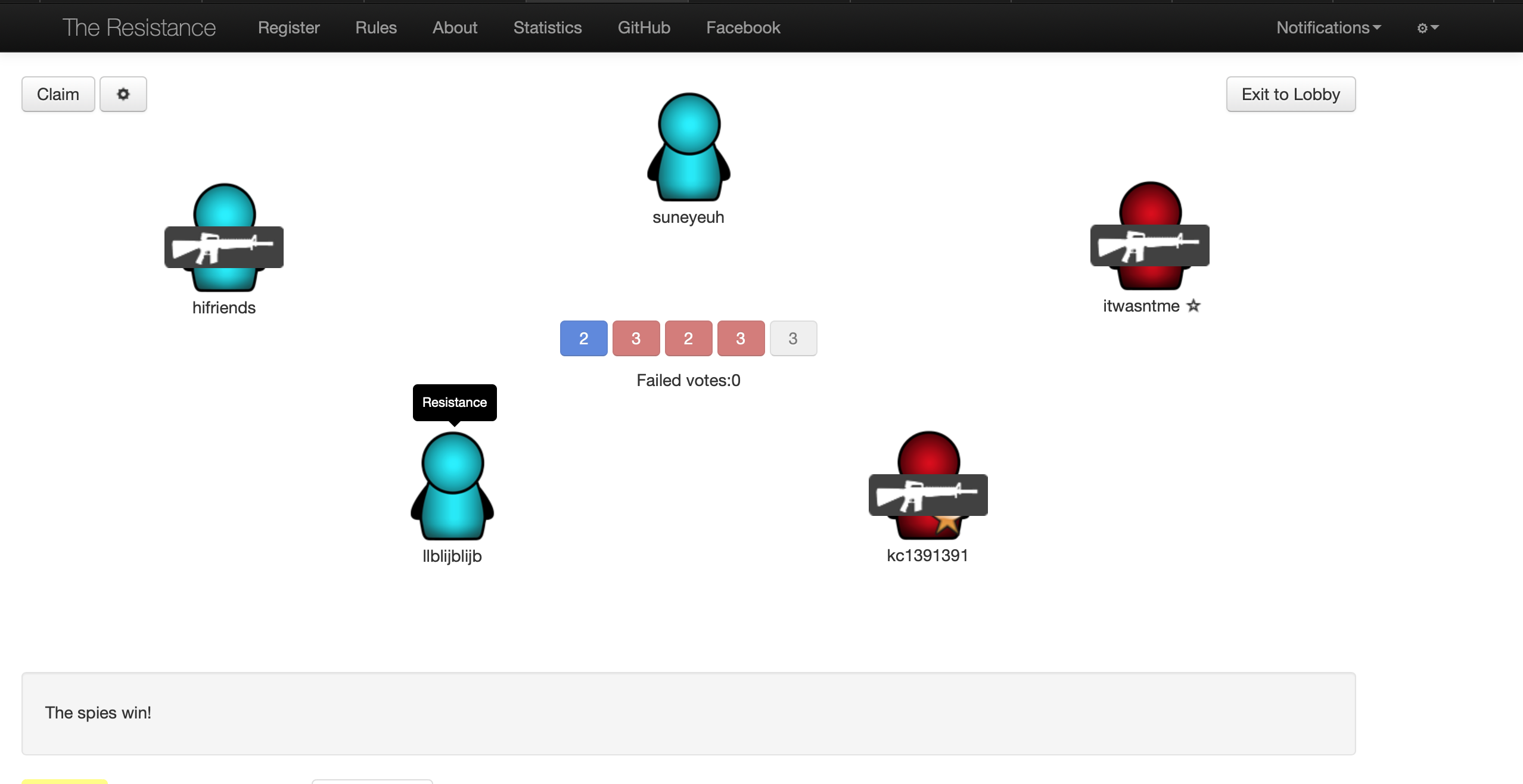The Resistance is a social-deduction party game designed by Don Eskridge and published by Indie Boards and Cards. The game was originally released as a card-based game, however we played the online version found at http://www.theresistanceplus.com. The target audience is for ages 13+ according to BoardGameGeek (https://boardgamegeek.com/boardgame/41114/resistance). The Resistance is intended to be played with 5-10 players.

The premise of The Resistance is that of a group of resistance fighters attempting to overthrow a corrupt government. However, some spies have infiltrated the group, and the resistance members must determine who they are in order to successfully complete their missions. Approximately one third of the players will be spies, and the rest will be resistance members.

The game is conducted over several rounds. The round begins by random selection of the group leader. In subsequent rounds, the next group leader will pass to the player to the left of the current group leader. The leader then chooses a team of players to go on a mission, and that selection will only be sent if it passes a majority vote (ties will not pass). If the team passes, the team members then vote on whether the mission succeeds or fails. Note that resistance members are only given the option to succeed.

The resistance wins if three missions succeed, and the spies win if three missions fail or if five teams in a row do not pass the majority vote. Each round (mission) requires a different number of team members that depend on the number of players in the game, while the fourth mission always requires two failure votes to fail.

The interesting points of The Resistance are that players may say anything as long as they say it to the whole group, and that there is almost no chance in the outcome of the game (everything can be determined through logical deduction). The limited resources (team members, votes, rounds) also apply a sense of urgency to the game that is invigorating and exciting.
In comparison to other similar social deduction games such as Mafia or Werewolf, it’s nice that players aren’t eliminated from the game by dying and that they can continue to play multiple rounds. However, I believe that the storytelling aspect of Mafia is far more colorful than The Resistance, which can start to feel mechanical after many rounds of play.
This is certainly a fun game to play with friends and family that you (think that you) know well. I felt the most fun part was deceiving and manipulating the resistance members as a spy, often casting one of their own in a bad light to clear my name. Passing a vote in your favor is an exhilarating feeling.
I felt that something that The Resistance does really well is that it forces you to analyze and think about each action and decision logically, instead of relying on chance or a lucky dice roll. Acting is also an important part of creating convincing deceptions and revealing inconsistencies, but at the end of the day no amount of acting can save you from an illogical action. Unfortunately, I also noticed that those who spoke loudest were often those that controlled the discussion and sometimes wouldn’t let others speak. This is a problem, as sometimes quieter folks may have important observations that are critical to solving the game, but may be unable to voice them.
If I were to change The Resistance, I would recommend adding some way for all players to have an equal voice in discussion. Something along the lines of letting each players speak at least once per round before voting would be nice and help those who may be intimidated or simply just quiet have their voices heard.



